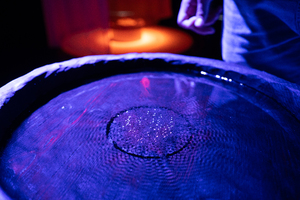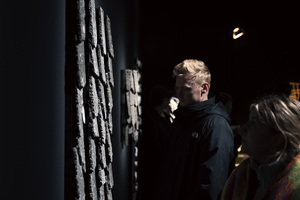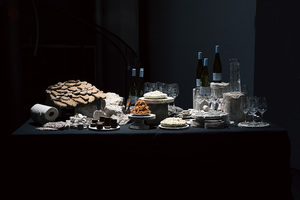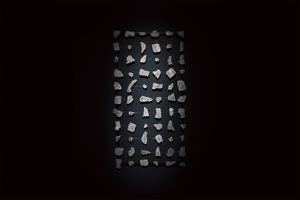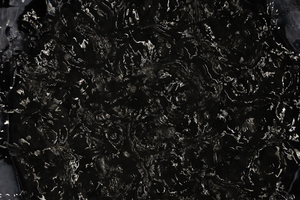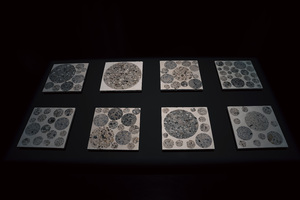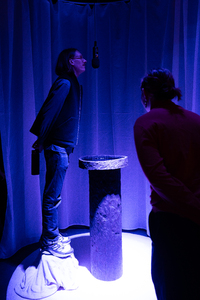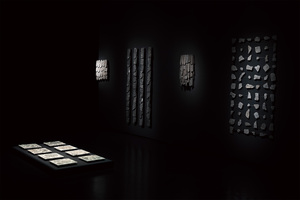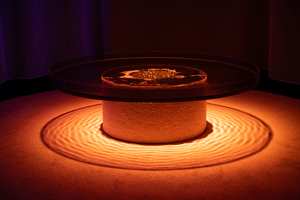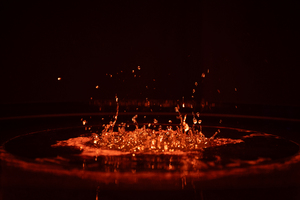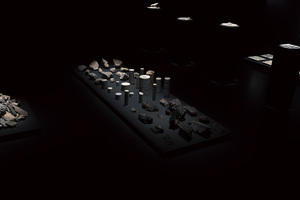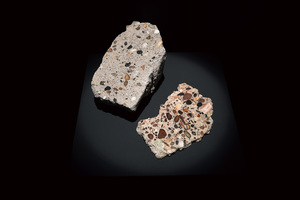"HfG Website"
| Begriff | HfG Website |
| Metakey | Freigabe Nutzung HfG (rights:usage_hfg) |
| Typ | Keyword |
| Vokabular | Rechte |
1864 Inhalte
- Seite 1 von 156
Bilder Ausstellung
- Titel
- Bilder Ausstellung
- Autor/in
- Kategorie
- Schlagworte
- Datierung
- 24.10.2024
- Titel
- Bilder Ausstellung
- Titel (en)
- Images exhibition
- Urheberrechtshinweis
- © Joshua Weber
- Rechtsschutz/Lizenz
- Freigabe Nutzung HfG
- Medienersteller/in
- Beziehung/Funktion
- Medien-Beschreibung
- Die Objekte der Ausstellung und ihr Erlebnis
- Medien-Beschreibung (en)
- The objects of the exhibition and the experience
- Projektleiter/in
- Semester
- Studiengang
- Typ der Abschlussarbeit
- Importiert am
- 03.11.2024
- Übergeordnete Sets
- 1
Bilder Ausstellung
- Titel
- Bilder Ausstellung
- Autor/in
- Kategorie
- Schlagworte
- Datierung
- 30.10.2023
- Titel
- Bilder Ausstellung
- Titel (en)
- Images exhibition
- Urheberrechtshinweis
- © Joshua Weber
- Rechtsschutz/Lizenz
- Freigabe Nutzung HfG
- Medienersteller/in
- Beziehung/Funktion
- Projektleiter/in
- Semester
- Studiengang
- Typ der Abschlussarbeit
- Importiert am
- 27.05.2024
- Übergeordnete Sets
- 1
Bilder Ausstellung
- Titel
- Bilder Ausstellung
- Autor/in
- Kategorie
- Schlagworte
- Datierung
- 30.10.2023
- Titel
- Bilder Ausstellung
- Titel (en)
- Images exhibition
- Urheberrechtshinweis
- © Joshua Weber
- Rechtsschutz/Lizenz
- Freigabe Nutzung HfG
- Medienersteller/in
- Beziehung/Funktion
- Projektleiter/in
- Semester
- Studiengang
- Typ der Abschlussarbeit
- Importiert am
- 27.05.2024
- Übergeordnete Sets
- 1
Bilder Ausstellung
- Titel
- Bilder Ausstellung
- Autor/in
- Kategorie
- Schlagworte
- Datierung
- 30.10.2023
- Titel
- Bilder Ausstellung
- Titel (en)
- Images exhibition
- Urheberrechtshinweis
- © Joshua Weber
- Rechtsschutz/Lizenz
- Freigabe Nutzung HfG
- Medienersteller/in
- Beziehung/Funktion
- Projektleiter/in
- Semester
- Studiengang
- Typ der Abschlussarbeit
- Importiert am
- 27.05.2024
- Übergeordnete Sets
- 1
Bilder Ausstellung
- Titel
- Bilder Ausstellung
- Autor/in
- Kategorie
- Schlagworte
- Datierung
- 24.10.2024
- Titel
- Bilder Ausstellung
- Titel (en)
- Images exhibition
- Urheberrechtshinweis
- © Joshua Weber
- Rechtsschutz/Lizenz
- Freigabe Nutzung HfG
- Medienersteller/in
- Beziehung/Funktion
- Medien-Beschreibung
- Die Objekte der Ausstellung und ihr Erlebnis
- Medien-Beschreibung (en)
- The objects of the exhibition and the experience
- Projektleiter/in
- Semester
- Studiengang
- Typ der Abschlussarbeit
- Importiert am
- 03.11.2024
- Übergeordnete Sets
- 1
Bilder Ausstellung
- Titel
- Bilder Ausstellung
- Autor/in
- Kategorie
- Schlagworte
- Datierung
- 30.10.2023
- Titel
- Bilder Ausstellung
- Titel (en)
- Images exhibition
- Urheberrechtshinweis
- © Joshua Weber
- Rechtsschutz/Lizenz
- Freigabe Nutzung HfG
- Medienersteller/in
- Beziehung/Funktion
- Projektleiter/in
- Semester
- Studiengang
- Typ der Abschlussarbeit
- Importiert am
- 27.05.2024
- Übergeordnete Sets
- 1
Bilder Ausstellung
- Titel
- Bilder Ausstellung
- Autor/in
- Kategorie
- Schlagworte
- Datierung
- 24.10.2024
- Titel
- Bilder Ausstellung
- Titel (en)
- Images exhibition
- Urheberrechtshinweis
- © Joshua Weber
- Rechtsschutz/Lizenz
- Freigabe Nutzung HfG
- Medienersteller/in
- Beziehung/Funktion
- Medien-Beschreibung
- Die Objekte der Ausstellung und ihr Erlebnis
- Medien-Beschreibung (en)
- The objects of the exhibition and the experience
- Projektleiter/in
- Semester
- Studiengang
- Typ der Abschlussarbeit
- Importiert am
- 03.11.2024
- Übergeordnete Sets
- 1
Bilder Ausstellung
- Titel
- Bilder Ausstellung
- Autor/in
- Kategorie
- Schlagworte
- Datierung
- 30.10.2023
- Titel
- Bilder Ausstellung
- Titel (en)
- Images exhibition
- Urheberrechtshinweis
- © Joshua Weber
- Rechtsschutz/Lizenz
- Freigabe Nutzung HfG
- Medienersteller/in
- Beziehung/Funktion
- Projektleiter/in
- Semester
- Studiengang
- Typ der Abschlussarbeit
- Importiert am
- 27.05.2024
- Übergeordnete Sets
- 1
Bilder Ausstellung
- Titel
- Bilder Ausstellung
- Autor/in
- Kategorie
- Schlagworte
- Datierung
- 24.10.2024
- Titel
- Bilder Ausstellung
- Titel (en)
- Images exhibition
- Urheberrechtshinweis
- © Joshua Weber
- Rechtsschutz/Lizenz
- Freigabe Nutzung HfG
- Medienersteller/in
- Beziehung/Funktion
- Medien-Beschreibung
- Die Objekte der Ausstellung und ihr Erlebnis
- Medien-Beschreibung (en)
- The objects of the exhibition and the experience
- Projektleiter/in
- Semester
- Studiengang
- Typ der Abschlussarbeit
- Importiert am
- 03.11.2024
- Übergeordnete Sets
- 1
Bilder Ausstellung
- Titel
- Bilder Ausstellung
- Autor/in
- Kategorie
- Schlagworte
- Datierung
- 24.10.2024
- Titel
- Bilder Ausstellung
- Titel (en)
- Images exhibition
- Urheberrechtshinweis
- © Joshua Weber
- Rechtsschutz/Lizenz
- Freigabe Nutzung HfG
- Medienersteller/in
- Beziehung/Funktion
- Medien-Beschreibung
- Die Objekte der Ausstellung und ihr Erlebnis
- Medien-Beschreibung (en)
- The objects of the exhibition and the experience
- Projektleiter/in
- Semester
- Studiengang
- Typ der Abschlussarbeit
- Importiert am
- 03.11.2024
- Übergeordnete Sets
- 1
Bilder Ausstellung
- Titel
- Bilder Ausstellung
- Autor/in
- Kategorie
- Schlagworte
- Datierung
- 30.10.2023
- Titel
- Bilder Ausstellung
- Titel (en)
- Images exhibition
- Urheberrechtshinweis
- © Joshua Weber
- Rechtsschutz/Lizenz
- Freigabe Nutzung HfG
- Medienersteller/in
- Beziehung/Funktion
- Projektleiter/in
- Semester
- Studiengang
- Typ der Abschlussarbeit
- Importiert am
- 27.05.2024
- Übergeordnete Sets
- 1
Bilder Ausstellung
- Titel
- Bilder Ausstellung
- Autor/in
- Kategorie
- Schlagworte
- Datierung
- 30.10.2023
- Titel
- Bilder Ausstellung
- Titel (en)
- Images exhibition
- Urheberrechtshinweis
- © Joshua Weber
- Rechtsschutz/Lizenz
- Freigabe Nutzung HfG
- Medienersteller/in
- Beziehung/Funktion
- Projektleiter/in
- Semester
- Studiengang
- Typ der Abschlussarbeit
- Importiert am
- 27.05.2024
- Übergeordnete Sets
- 1
